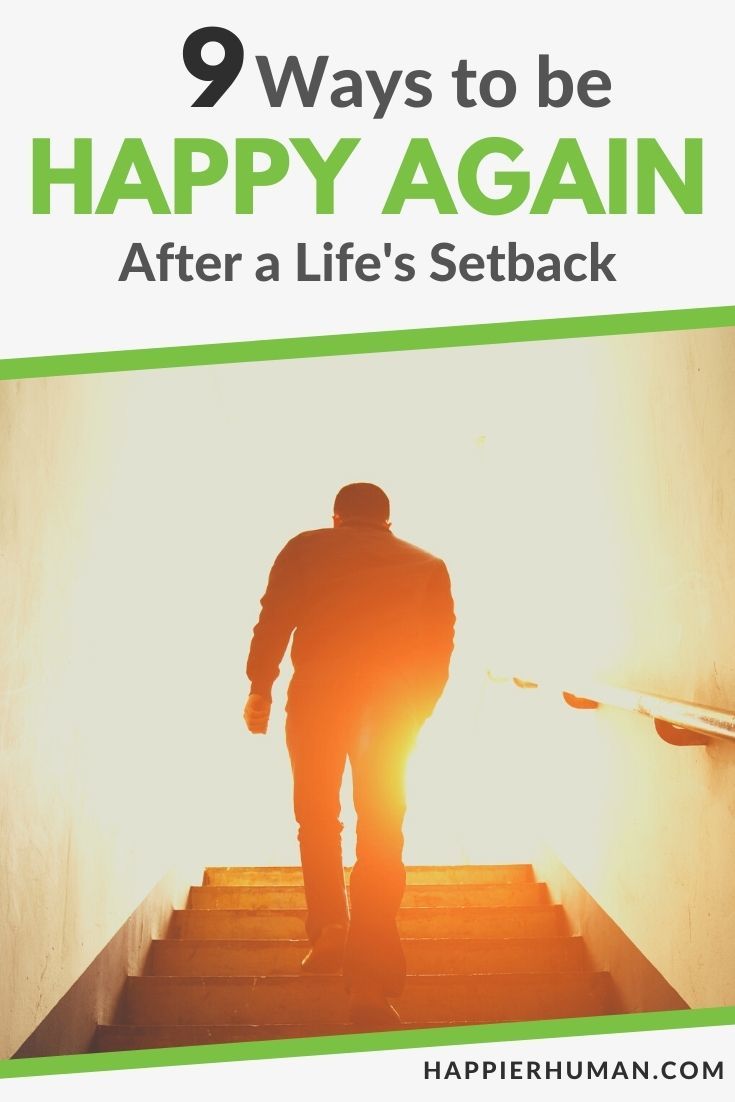There might be affiliate links on this page, which means we get a small commission of anything you buy. As an Amazon Associate we earn from qualifying purchases. Please do your own research before making any online purchase.
We all know that progress is rarely linear.
For example, in my line of work, roughly 30-to-40% of all clients will drop out of therapy. In other words, while some manage to follow through with the process and achieve their goals, others stop showing up to their weekly sessions.
I love hearing people’s stories and helping them work through their emotional problems; it’s what I wanted to do ever since I was a teenager struggling to overcome my anxieties.
I can’t even begin to describe the excitement and gratitude I felt when I had my first client in therapy. But after about six months… puf, he disappeared. No phone call, no text, no last session.
When dealing with a setback like this, it’s easy to find yourself in a position where you simply don’t know how to be happy again. Perhaps this professional setback shouldn’t have affected my sense of happiness and self-worth. But it did.
It took me months to finally realize that even though it was painful, this setback was a powerful lesson about how failure is a normal part of the process.
What You Will Learn
9 Tips on How to Be Happy Again After a Setback
1. Focus on reflection instead of avoidance
When dealing with a setback, your first instinct might be to simply put it aside and move on with your life as if nothing happened.
Or, you fuel yourself with false positivity in a desperate attempt to suffocate the shame and self-loathing which seem to have taken over your entire life.
But the problem with false positivity is that it runs dry, fast. It’s like putting a band-aid on a gunshot wound.
Soon enough, you will find yourself dealing with the same feelings of guilt and shame that you’re so desperately trying to cover up by saying, “Think positive!” or “You can achieve anything.”
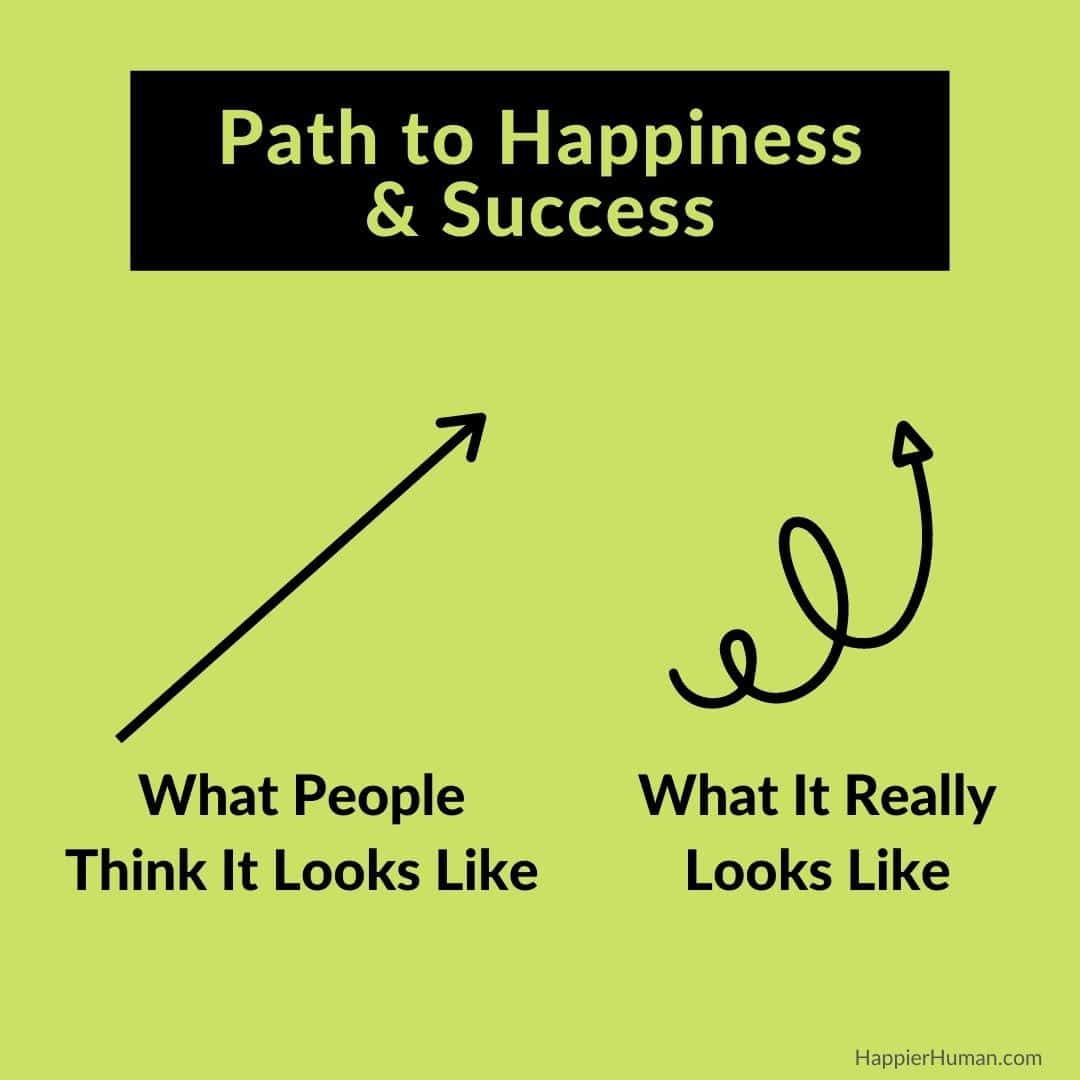
But something did happen, and no matter how much you avoid thinking or talking about it, you cannot deny your emotions.
You can rationalize your setback, force yourself to forget it, but the emotional turmoil… that’s something you need to face head-on.
How?
Through acceptance and self-reflection.
Maybe shame, guilt, and self-loathing are not the ideal responses when dealing with a setback. But just because you label them as “not OK” and force yourself to avoid them doesn’t mean these feelings will magically go away.
Instead, find the courage to face your emotional pain head-on; to own it and overcome it at your pace.
Practical tip: Insightful questions
Here are a few insightful questions to help you reflect on your setback. Take as much time as you need to reflect on each question, look deep within yourself, and write down an honest answer.
2. It’s OK to Mourn Your Loss
In general, we tend to associate the process of grieving and mourning with death. But even though we cannot compare a failed business venture with the death of a loved one, a loss is something that inevitably impacts your sense of well-being.
When you lose something or someone that you have invested (emotionally, financially, or spiritually) into, the first feeling you might experience – even before shame and guilt – is a deep sense of helplessness.
It is at that moment that you realize how little control you have over reality. No matter how much you plan, invest, and sacrifice, there’s always that uncontrollable side of life that can ruin everything in an instance.
Usually, you’re not aware of the uncontrollable because your brain has evolved to focus primarily on what’s tangible and predictable. Otherwise, you would be living in a constant state of existential uncertainty that would drive you mad in a matter of weeks (maybe months if you’re resilient enough).
But when you’re dealing with loss, the uncontrollable side of reality becomes as obvious as daylight, and the helplessness that comes with this realization will generate a profound sense of sadness.
But just like guilt and shame, sadness is part of your emotional spectrum, a feeling that you need to embrace and validate if you wish to process your loss healthily.
Practical tip: Set aside some time to feel your emotions
There are no “good” and “bad” emotions. All emotional experiences are worthy of acceptance and understanding, even the least pleasant ones. And that’s why I encourage you to give yourself 30 minutes each day for emotional well-being; 30 minutes during which you are free to feel anything. No avoidance, no censorship.
3. Rewrite Your Narrative
Working through the emotional struggles that naturally result from life’s unexpected setbacks is just the beginning of your healing journey.
The reason why it’s crucial to validate your pain and accept it as part of your personal and professional growth is because this approach offers clarity.
You cannot rebuild yourself from a place of guilt, helplessness, and self-loading.
It is only when you integrate the unpleasant experience that you can envision a different future.
So, if you wish to be happy again, you need a fresh start. Maybe not right now, maybe you still need some time to process everything you’ve been through.
In essence, rewriting your narrative means letting go of the victim mentality, owning your failure or loss, and planning your next move.
But how does a fresh start look like?
Maybe it’s a new relationship or a new business venture. Perhaps you’ll discover an exciting passion or a completely different career path.
It’s your start, your narrative, your vision, your future.
Remember, a setback doesn’t signal the end of your journey, but the need to change or maybe adapt your trajectory.
Practical tip: Journaling
Journaling is an effective way to process your emotional struggles and rewrite your narrative. Whether you prefer the pen-and-paper version or the digital one, keeping a journal helps you regain clarity and sketch out your next steps.
Ideally, you should have at least one journal entry per week. Consistency is crucial. Remember, the main purpose of journaling is to help you get out of your head, so write whatever comes to mind.
4. Master Your Discomfort Zone
Even if you work through your emotional pain and rewrite your narrative, chances are you might still feel like you don’t know how to be happy again.
And that’s ok. Clarity takes time and patience.
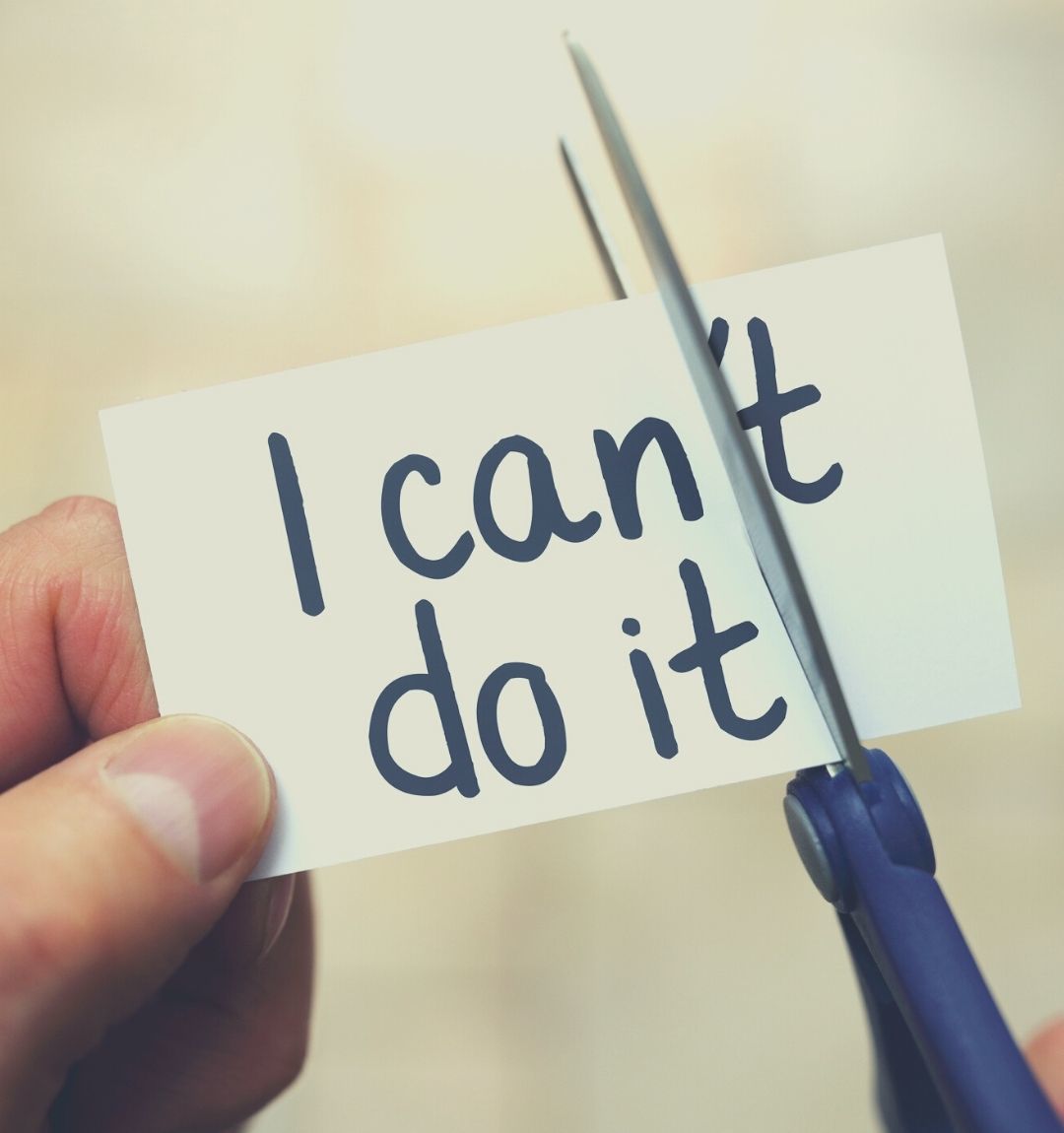
A new beginning will inevitably bring a dose of uncertainty and discomfort. That’s what happens when the path you knew so well has come to an abrupt end and you’re forced to venture into the wilderness.
Change, regardless of whether it’s for the better or worse, involves discomfort.
No one likes to feel clueless and uncomfortable. No one sails into uncharted waters because it’s nice and cozy.
We do it because it’s the only way to reach authentic happiness and growth.
What I want you to realize is that your body and mind are prepared for this journey, even if you’re feeling anxious about what lies ahead.
Just as the body relies on various mechanisms to maintain homeostasis (a state of internal balance), so does the mind possess the ability to find balance and calm amid uncertainty and discomfort.
That’s what your brain has evolved to do – adapt and survive even in the harshest conditions.
But you know what’s the best part about your discomfort zone!?
The opportunity to build emotional resilience.
Practical tip: A daily mindful moment
When faced with uncertainty, I believe the best way to tackle it is by grounding yourself in the present moment so that you don’t get lost in thoughts. More specifically, give yourself a daily mindful moment.
5. Build Emotional Resilience
In essence, emotional resilience is the ability to navigate your entire emotional spectrum without getting sideswiped by the unpleasant feelings and experiences that life occasionally throws down your path.
Being emotionally resilient means finding the strength and courage to adapt to stress, adversity, and even trauma.
It is an attitude that you adopt when you realize that even though you cannot control every aspect of your life, you can always choose how to react in the face of adversity.
To help you get a better sense of what I’m talking about, here are three fundamental components of emotional resilience:
Long story short, when it comes to overcoming a setback, emotional resilience is a vital skill that brings long-term benefits.
Practical tip: Recognition, acceptance, understanding, non-identification
Here are four steps to help you process your emotions:
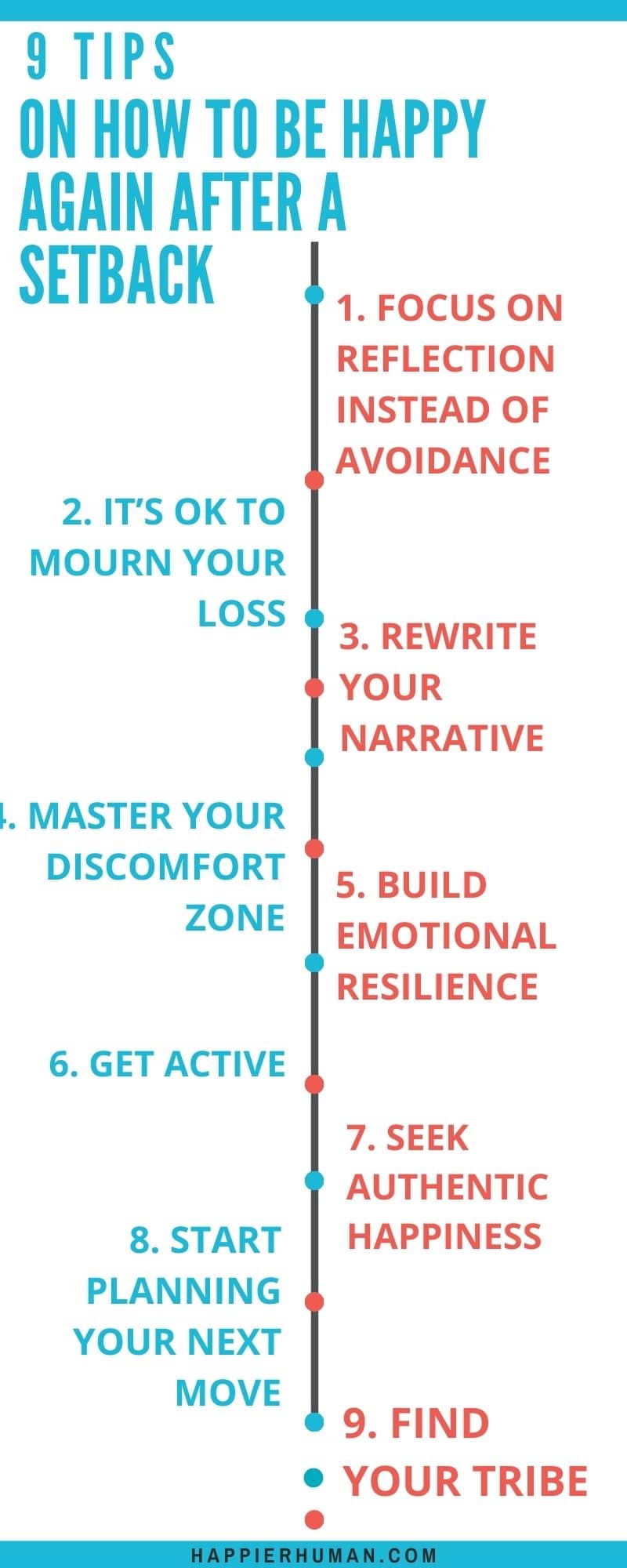
6. Get Active
One of the biggest risks associated with a setback is depression.
And with depression comes idleness.
In other words, you slowly fall victim to comfort because you don’t feel like taking another risk and perhaps facing another setback. Or maybe you don’t feel you have the energy to start over.
The point is, depression can prompt you to fabricate all sorts of reasons why you should remain safe and ‘cozy.’
But it doesn’t have to be like that, not if you find the strength to overcome the I-don’t-feel-doing-it mentality.
As harsh as it may sound, not being ‘in the right mood’ to do something should not be an excuse to spend the entire day scrolling through social media or vegging in front of the TV.
But I get it; it’s hard to feel motivated and pumped up after a setback.
Working with people with depression has taught me is that less is better than none.
There’s no point in forcing yourself to hit the gym one hour each day if you can barely do 10 push-ups. There’s no point in forcing yourself to read like Bill Gates when you barely have the energy to go through 10 pages.
Stick with the small steps. Instead of setting yourself up for failure by chasing huge goals, focus on getting there little by little.
Consistency outweighs speed.
Practical tip: Take a nature walk
Nature walks are the perfect opportunity to clear your mind, regain focus, and reflect on your life. Whether you prefer forest trails, mountain hikes, or a quick trip to your local park, spending a few hours in nature is a pleasant way to get active and recharge your batteries.
7. Seek Authentic Happiness
As I said before, a setback can be the perfect opportunity for self-reflection and growth.
Maybe now’s the time to reevaluate your decisions, recalibrate your perspective, and rediscover your core values.
Sometimes, a setback can be a real eye-opener. Maybe you realize that the path you’ve chosen wasn’t yours. In other words, the decisions we make and the paths we take are not always in tune with our core values.
It’s not uncommon for people to make romantic or career choices based on what their family, friends, or society in general label as “the right decision.”
Even if this wasn’t your case, it’s always smart to reconnect with your core values before embarking on a new journey.
It is only when you stay true to your values and character strengths that you will be able to achieve authentic and lasting happiness.
Practical tip: Discover and cultivate your character strengths
Go to viacharacter.org and take the free survey. Once the test reveals your 5 most valued character strengths, think of specific actions/practices that help you cultivate each strength.
If you wish to cultivate authentic happiness and achieve success, build your life around your character strengths.
8. Start Planning Your Next Move
If you haven’t figured out your next step and still need some time to process your loss, it’s ok to skip this step (for now).
But if you feel like you’ve regained your inner balance and learned everything there was to learn from your setback, then it’s time to plan your next move.
Just like rewriting your narrative, planning allows you to gain clarity and envision the future you want to build for yourself.
When it comes to planning, I believe in the pen-and-paper approach. In other words, pick up a pen and start putting your plans on paper. It doesn’t have to be something super specific. Your only purpose (right now) should be to explore different ideas and identify potential resources.
Even if you don’t feel inspired right now, I encourage you to sketch out a few ideas. Maybe some will come to fruition or maybe not. Maybe tomorrow (or one month from now), you’ll come up with a better vision for your future.
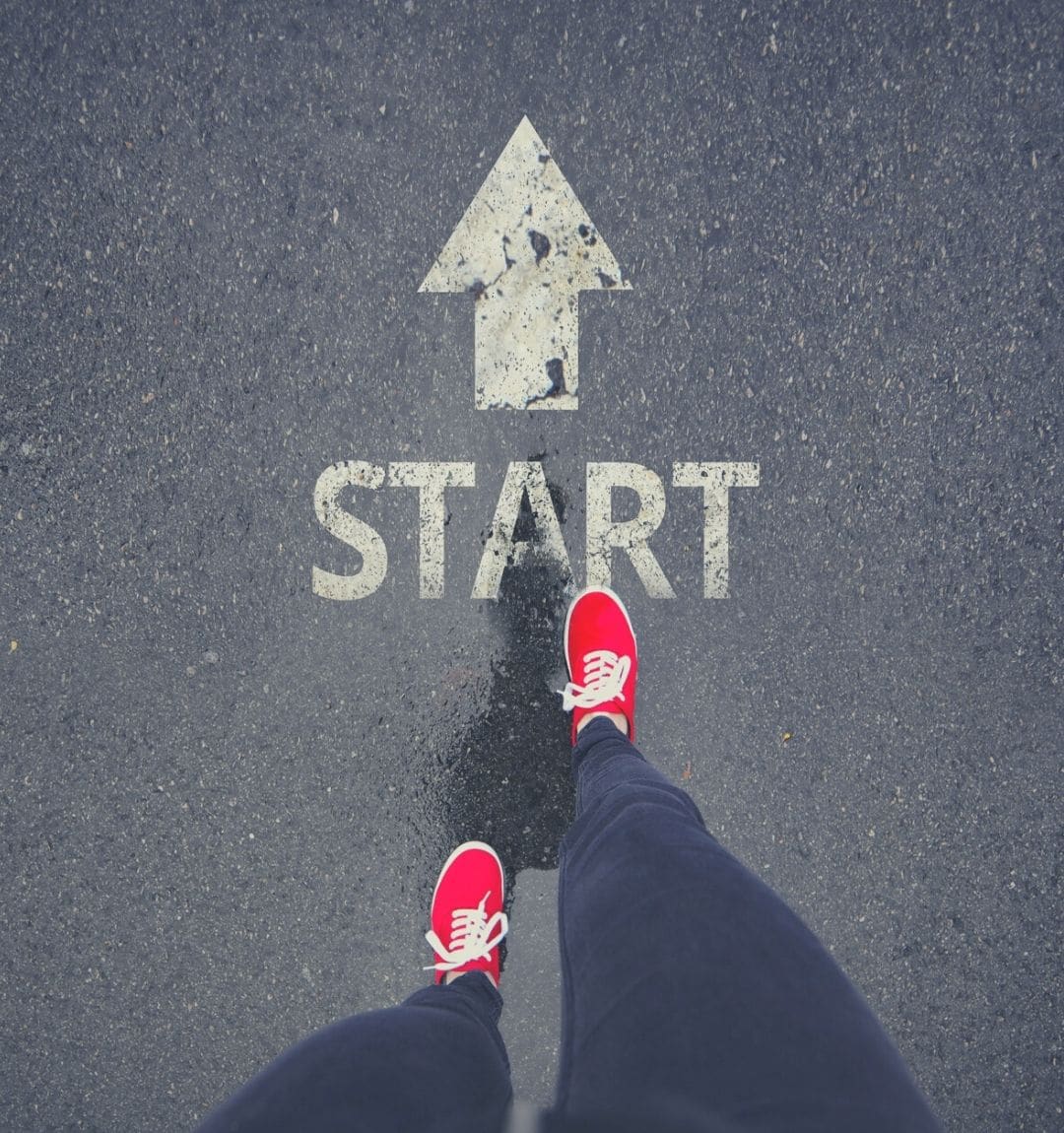
What matters most is to never stop trying.
As Pablo Picasso said, “Inspiration exists, but it has to find you working.”
Practical tip: Visualization
Just like journaling, visualization helps you explore different ideas and inspires you to pursue new and exciting opportunities.
All you need to do is find a comfortable position, close your eyes, focus on a goal, and allow your mind to wander in that direction.
Imagine yourself conquering your goal or achieving your dream.
Create a detailed mental image of that special moment. You can even write it down in your journal.
9. Find Your Tribe
Even though human beings tend to flourish and thrive in groups, today we are witnessing the beginning of a paradigm shift. In other words, an increasing number of people feel disconnected and lost.
Maybe it’s because our survival no longer depends on “running with the pack”; maybe it’s the result of the digital revolution; or, the pressure to fit perfectly with a given group is so high, that it’s easy to feel like you don’t belong anywhere.
Throughout my career as a clinical psychologist, I’ve come to realize that people with a strong and supportive social network have a better chance to recover and achieve post-traumatic growth than those who need to find their way out of a setback alone.
Long story short, adaptability is the key. You need to find the courage to face the world all by yourself while keeping an open heart and mind for those who make you feel like you belong.
Practical tip: Find your tribe
Final Thoughts on How to Be Happy Again:
If you’ve suffered a setback and want to know how to be happy again, start by looking within. That’s where true healing and progress begins.
Remember, life isn’t a highway, but a mountain road. Curvy, bumpy, sometimes scary, but ultimately exciting and invigorating.

Alexander Draghici is a licensed Clinical Psychologist, CBT practitioner, and content writer for various mental health websites. His work focuses mainly on strategies designed to help people manage and prevent two of the most common emotional problems – anxiety and depression.
